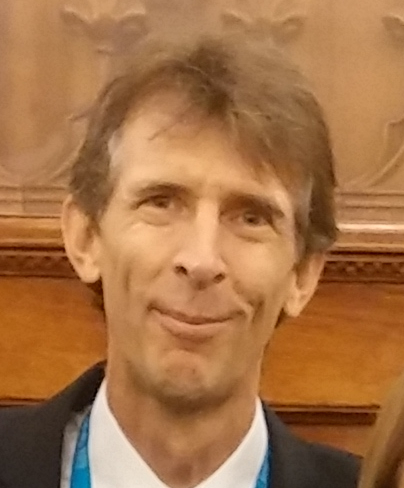Save the date 20-22 April 2018

Speaker Details
|
|
|
|
Biography |
|
|
 Dr. Peter McGrath obtained his BSc (honours) in Agricultural Zoology from the University of Glasgow, UK, and followed this with a PhD from the University of Leeds, UK, in 1989. His 10-year research career focused on the insect transmission of plant viruses and included postdoctoral positions at the Scottish Crop Research Institute (now the James Hutton Institute, Dundee, UK) as well as Purdue University and the University of Arizona in the USA. Returning to the UK in 1997, he established his own business as a freelance journalist focusing on agricultural, environmental and scientific issues.
The experience he gained in communicating scientific issues to non-specialist audiences made him an ideal fit for his first position at The World Academy of Sciences (TWAS, www.twas.org) in Trieste, Italy – as writer/editor in the Public Information Office. During this time he worked on the TWAS Newsletter, TWAS Annual Report, and edited seven volumes of the TWAS-UNDP case study series ‘Sharing Innovative Experiences’.
From 2006, Peter began overseeing the implementation of TWAS’s core programmes, including South-South fellowships and other exchange schemes, research grants and various prizes, as well as the activities of the Organization for Women in Science for the Developing World (OWSD). During this time he has helped expand these programmes as well as developing new partnerships and activities, including the EU-funded EuroAfrica-ICT project (2009-2012), helping to establish the TWAS science policy/science diplomacy programme, and acting as the liaison person for TWAS’s involvement in the Solar Radiation Management Governance Initiative (SRMGI), for example.
In 2013 he switched to become programme coordinator of the InterAcademy Partnership (IAP, www.interacademies.org) – a network of more than 130 merit-based academies of science and medicine. In particular, he deals with the activities of the Trieste-based IAP for Science and IAP for Health. IAP’s strategic priorities include provide evidence-based advice on scientific issues to policy-makers, promoting science education and promoting responsible research practices.
Since 2013, he has also retained his position as coordinator of the TWAS science policy/science diplomacy initiative.
Dr. Peter McGrath obtained his BSc (honours) in Agricultural Zoology from the University of Glasgow, UK, and followed this with a PhD from the University of Leeds, UK, in 1989. His 10-year research career focused on the insect transmission of plant viruses and included postdoctoral positions at the Scottish Crop Research Institute (now the James Hutton Institute, Dundee, UK) as well as Purdue University and the University of Arizona in the USA. Returning to the UK in 1997, he established his own business as a freelance journalist focusing on agricultural, environmental and scientific issues.
The experience he gained in communicating scientific issues to non-specialist audiences made him an ideal fit for his first position at The World Academy of Sciences (TWAS, www.twas.org) in Trieste, Italy – as writer/editor in the Public Information Office. During this time he worked on the TWAS Newsletter, TWAS Annual Report, and edited seven volumes of the TWAS-UNDP case study series ‘Sharing Innovative Experiences’.
From 2006, Peter began overseeing the implementation of TWAS’s core programmes, including South-South fellowships and other exchange schemes, research grants and various prizes, as well as the activities of the Organization for Women in Science for the Developing World (OWSD). During this time he has helped expand these programmes as well as developing new partnerships and activities, including the EU-funded EuroAfrica-ICT project (2009-2012), helping to establish the TWAS science policy/science diplomacy programme, and acting as the liaison person for TWAS’s involvement in the Solar Radiation Management Governance Initiative (SRMGI), for example.
In 2013 he switched to become programme coordinator of the InterAcademy Partnership (IAP, www.interacademies.org) – a network of more than 130 merit-based academies of science and medicine. In particular, he deals with the activities of the Trieste-based IAP for Science and IAP for Health. IAP’s strategic priorities include provide evidence-based advice on scientific issues to policy-makers, promoting science education and promoting responsible research practices.
Since 2013, he has also retained his position as coordinator of the TWAS science policy/science diplomacy initiative.
|
|
|
|
|
|
|
Abstract |
|
|
|
|
|
|
|
|
|
|
|